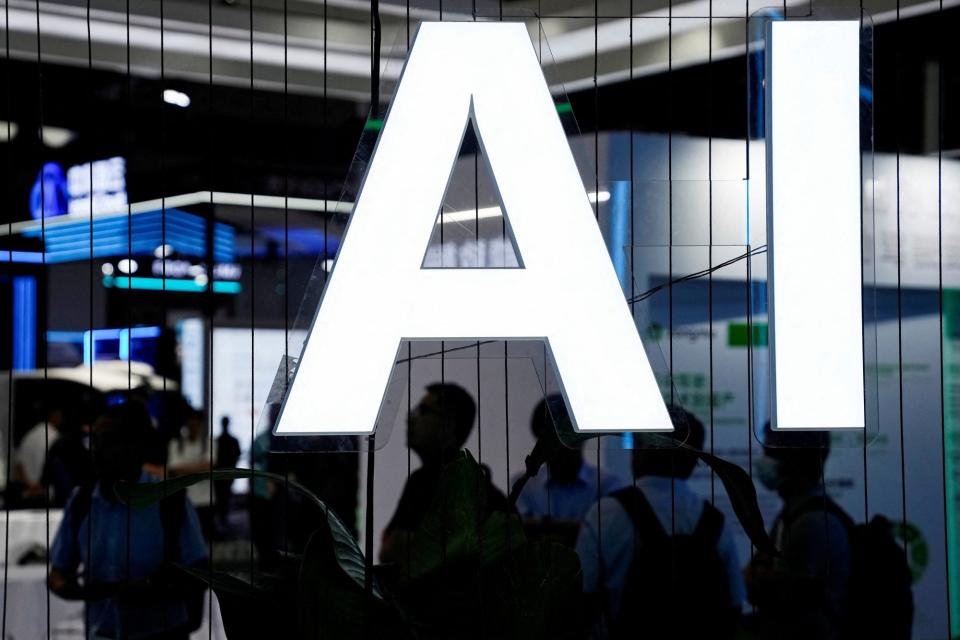US, China can work together on AI despite the barriers, expert tells forum
The United States and China can cooperate on artificial intelligence despite the growing barriers to scientific collaboration, an AI policy expert told a forum in Hong Kong on Tuesday.
Xue Lan, director of Tsinghua University's Institute for AI International Governance, said at the Asia Society event that the two nations could work together on access to the emerging technology as well as safety.
"Certainly the US, China can collaborate and to ensure that there's a global platform and a framework to ensure that ... AI could be used safely. And you know, whatever the risks that we may have can be guarded against," Xue said during a panel discussion on US-China diplomacy.
Do you have questions about the biggest topics and trends from around the world? Get the answers with SCMP Knowledge, our new platform of curated content with explainers, FAQs, analyses and infographics brought to you by our award-winning team.
"Another potential area that the US and China can work together on AI is how to increase, to improve the capacity of developing countries in accessing and using AI technologies."
He said AI would have a huge impact on the world economy, and without access to the technologies it could worsen problems in developing nations.

Artificial intelligence is expected to have a major impact on the world economy. Photo: Reuters alt=Artificial intelligence is expected to have a major impact on the world economy. Photo: Reuters>
Xue was among more than a dozen top academics, economists and former officials at the event held in memory of Jeffrey Bader and David Dollar, both influential experts on US-China relations who died last year.
The US and China - at odds on a wide range of issues - are locked in an intense technological battle. Washington has ramped up measures restricting China's access to advanced technologies, including AI, which it says are necessary to protect national security and curb Chinese military ambitions.
But the two powers did hold their first intergovernmental dialogue last week, aiming to seek consensus on global governance of AI. That dialogue arose after leaders Xi Jinping and Joe Biden agreed to manage tensions during a summit in November.
Last week's meeting on AI, held in Switzerland, concluded without any immediate results. Washington raised concerns over China's "misuse" of AI while Beijing lashed out at US restrictions against China in the field.
China has long complained that the US is trying to "contain" its technological development, including restricting scientific collaboration between the two countries, which Xue said used to be "very strong".
There are growing concerns over scientific "decoupling" because of national security concerns in the US. The number of research papers jointly authored by Chinese and American academics has declined in recent years, while more Chinese researchers say they have been excluded from sensitive projects or barred from entry to the United States.
The renewal of a key science and technology treaty between Beijing and Washington has also been delayed as the two sides debate access to data and the personal safety of US scientists in China.
"Right now, American academics are very gun-shy of doing things with China," Dennis Wilder, the CIA's former deputy assistant director for East Asia and the Pacific, told the panel discussion.
"And frankly, on the other side of it, the Chinese espionage laws makes American academics wonder if they can do research in China today without being accused of espionage."
China revised its anti-espionage law last year, broadening the definition of spying to include the transfer of any document or data that risks its national security, unsettling many foreigners working in China.
Wilder, now a senior fellow with the Initiative for US-China Dialogue on Global Issues at Georgetown University, said the loss of academic links between the two countries needed to be addressed.
"We are losing the expertise on China radically," he said. "And this is gonna be a problem for the United States."
This article originally appeared in the South China Morning Post (SCMP), the most authoritative voice reporting on China and Asia for more than a century. For more SCMP stories, please explore the SCMP app or visit the SCMP's Facebook and Twitter pages. Copyright © 2024 South China Morning Post Publishers Ltd. All rights reserved.
Copyright (c) 2024. South China Morning Post Publishers Ltd. All rights reserved.

 Yahoo Finance
Yahoo Finance 